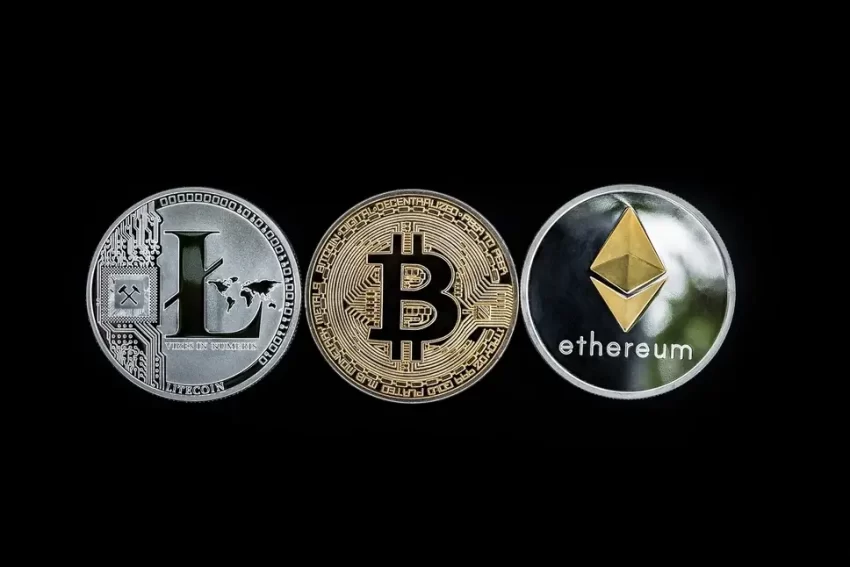The next big thing in cryptocurrency is Bitcoin and Ethereum replacement. These two cryptocurrencies have been around for a while and dominate the market. However, some new contenders are looking to replace them.
One of these is called Cardano. Cardano is a cryptocurrency based on a new blockchain technology called Ouroboros. This new technology is more scalable and efficient than Bitcoin and Ethereum. Cardano is still in development and has yet to be publicly available. However, it is already getting attention from investors and developers.
Another cryptocurrency that is looking to replace Bitcoin and Ethereum is EOS. EOS is a blockchain platform designed to be scalable and easy to use. EOS is already available and is being used by some businesses. However, it is still in its early stages and has yet to reach the level of adoption that Bitcoin and Ethereum have.
Finally, there is a new project called Polkadot. Polkadot is a network that allows different blockchain technologies to interoperate. This means businesses can use different blockchain technologies without worrying about compatibility issues. Polkadot is still in development and has not been available to the public.
These are just some of the new projects that are looking to replace Bitcoin and Ethereum. Which one will succeed is still to be seen. However, it is clear that a lot of innovation is happening in the cryptocurrency space and that the future is very exciting.
Why Bitcoin and Ethereum are being replaced
With the recent surge in the popularity of cryptocurrencies, many people are wondering which coins are the best to invest in. Bitcoin and Ethereum have been the two major players in the space for quite some time, but there are a few reasons why they may be getting replaced by other coins in the near future.
Bitcoin is the original cryptocurrency and has the largest market cap of any coin currently in existence. However, it is also the most expensive coin and has a very slow transaction speed. Ethereum is a close second in terms of market cap, and it is much faster than Bitcoin but still relatively expensive.
A few other coins are gaining a lot of traction lately and are starting to eat into the market share of Bitcoin and Ethereum. These coins are much cheaper and have faster transaction speeds, making them more attractive to investors.
One of the main reasons Bitcoin and Ethereum are being replaced is the high fees associated with these coins. You have to pay a fee when you want to send or receive Bitcoin or Ethereum. The fee goes to the miners who confirm the transaction.
With the increasing popularity of cryptocurrencies, the fees have been getting higher and higher. For example, when writing this, the fee for sending 1 Bitcoin is $26. That’s a lot of money to send someone digital currency!
With the high fees, using Bitcoin and Ethereum for small transactions is becoming less and less practical. For example, if you wanted to buy a coffee with Bitcoin, you would have to pay a $26 fee. That’s not very practical.
A few coins are trying to solve this problem by being cheaper and faster. These coins are called “altcoins” and include coins like Litecoin, Monero, and Dash.
Altcoins are much cheaper to use than Bitcoin or Ethereum and have faster transaction speeds. For example, the fee for sending 1 Litecoin is only $0.30. That’s a lot more practical for everyday transactions as the fees associated with Bitcoin and Ethereum continue
The new cryptocurrency on the rise: Bitcoin and Ethereum
Bitcoin and Ethereum are two of the most popular cryptocurrencies today. Bitcoin is the original cryptocurrency, and Ethereum is a newer option that has recently gained much popularity. Both options have a lot to offer investors, and you should be aware of a few key differences between them.
Bitcoin is the original cryptocurrency, and it was first released in 2009. Ethereum was first released in 2015. Bitcoin was created as a peer-to-peer electronic cash system. Ethereum was created as a platform allowing developers to build decentralized applications.
Bitcoin is a decentralized currency that uses a blockchain to record transactions. Ethereum is a decentralized platform that uses a blockchain to run smart contracts.
- Bitcoin is mined using a proof-of-work algorithm. Ethereum is mined using a proof-of-stake algorithm.
- Bitcoin has a block time of 10 minutes. Ethereum has a block time of 15 seconds.
- Bitcoin has a total supply of 21 million. Ethereum has a total supply of 100 million.
- Bitcoin is mostly used as a value store or digital currency. Ethereum is mostly used as a platform for decentralized applications.
- Bitcoin is more limited in its use cases than Ethereum. Ethereum has a lot of potential uses due to its smart contract functionality.
- Bitcoin is more volatile than Ethereum. Ethereum is less volatile than Bitcoin.
- Bitcoin is a more established option, but Ethereum has much potential due to its smart contract functionality.
How Bitcoin and Ethereum are being replaced
The rise of Bitcoin and Ethereum has been nothing short of meteoric.
In just a few short years, these two digital currencies have disrupted the financial world and impacted how we think about money.
However, there are already signs that newer, more innovative cryptocurrencies are replacing Bitcoin and Ethereum.
Here are four ways that Bitcoin and Ethereum are being replaced:
- Faster and more scalable cryptocurrencies are replacing Bitcoin.
Bitcoin is the original cryptocurrency, but it is also the slowest and most expensive to use.
This is because Bitcoin can only process seven transactions per second.
In comparison, Ethereum can process around 20 transactions per second, and newer cryptocurrencies like Nano can process up to 7,000 transactions per second.
As a result, many businesses and individuals are turning to faster and more scalable cryptocurrencies for their transactions.
- More versatile smart contract platforms are replacing Ethereum.
Ethereum was the first blockchain platform to offer smart contracts.
However, it is now replaced by more versatile smart contract platforms like EOS and Cardano.
These newer platforms offer a wider range of features and applications than Ethereum, making them more attractive to businesses and developers.
- More private and anonymous cryptocurrencies are replacing Bitcoin.
Bitcoin is a pseudonymous currency, meaning transactions are not completely anonymous.
However, there are now several cryptocurrencies that offer true anonymity, such as Monero and Zcash.
Individuals and businesses who value privacy and security are increasingly adopting these currencies.
- More energy-efficient cryptocurrencies are replacing Ethereum.
Ethereum is a proof-of-work blockchain, meaning it is very energy-intensive to use.
In contrast, proof-of-stake cryptocurrencies like Tezos and Cosmos are much more energy-efficient and environmentally friendly.
As more people become aware of the environmental impact of cryptocurrencies, proof-of-stake coins will become more popular.
Conclusion
Bitcoin and Ethereum have revolutionized the financial world, but they
- The future of cryptocurrency: Bitcoin and Ethereum
The future of cryptocurrency is bright, with Bitcoin and Ethereum leading the pack. Many reasons for this optimism include:
- The increasing adoption of cryptocurrencies by businesses and individuals.
- The maturing of the infrastructure.
- The increasing interest from institutional investors.
Bitcoin, the largest cryptocurrency by market capitalization, is often seen as the bellwether for the industry. The Ethereum network, which is the second largest, is also gaining traction as a platform for decentralized applications and smart contracts. These two cryptocurrencies are poised to continue their growth in the coming years.
businesses and individuals are increasingly adopting cryptocurrencies
The infrastructure for cryptocurrencies is maturing
institutional investors are taking an increasing interest in cryptocurrencies




